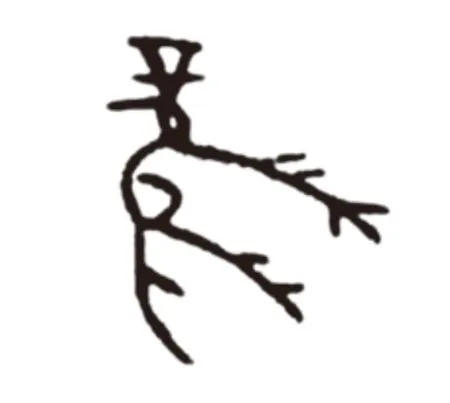Understanding Chinese Characters
By Huang Lu & Zou Xinsheng
The saying goes that man cannot catch the wind in a net,indicating the intangible nature of wind.The more elusive wind is,the more pioneering mankind will be,as curiosity consumes and brings innovation.Ultimately,we can appreciate wisdom of the Chinese character that captures the concept of wind after breaking down the character of 风 (fēng).
If life is a flower and love is the honey,wind is the seeds of Mother Nature moving through the world.There has been a zealous pursuit of truth associated with wind since ancient times,which echoes the evolution of the Chinese character 风,whose most original and prevalent meaning is “wind.” It is recounted that primitive people had a fervent faith in the God of Wind due to its mystery and their lack of understanding in science and technology.
Worship of wind is partially attributed to the intrinsic value of wind.In its word structure,oracle inscriptions of 风 speak of “airflow that helps birds fly in the sky” and 凤 (fèng) as a “flying bird like peacock.” Subsequently,篆 文 (zhuànwén; seal script) prevailed in Spring and Autumn Period (770-476 BC),when 风 was transformed into 凡 (fán) resembling sky,added with 云 (yún; cloud) and 气 (qì; air),as a result of which the substance of wind is also interpreted as similar to cloud and air in the sky.Experts say that the seal script of 云 evolved into 虫 (chóng; worm) so that 风 is referred to as “ 风 动 虫 生, 故 八日 而 化” (Disease is caused by the spread of microorganism in air),as recorded inShuowen Jiezi(《 说文 解 字》,Origin of Chinese Characters),the first known Chinese Dictionary.
When 水 (shuǐ; water) is added,the two characters generate 风 水 (fēngshuǐ; fengshui or geomancy),a well-known phrase which literally means “wind and water,” a roughly defined but complex integration of Chinese religion and mythology.While fengshui was outlawed as a feudal superstition in the Cultural Revolution of the mid-20th century,it now has a market in the world because fengshui possesses a comprehensive system gearing itself to contemporary science,which can be applied to subjects such as geography,meteorology,and psychology.
When the air flows,it brings the wind and influences the climate.Hence,the connotation of 风is closely related with air and climate.For instance,风 骚 (fēng sāo; literary excellence) originally refers to two of the most precious masterworks,Guofeng(Airs of the StatesfromBook of Songs) andLi Sao(Suffering ThroesfromSongs of Chu).The two earliest collections of Chinese poetry,as pearls in China’s literary history,represent the literary climate in their times respectively.
It is quite obvious that Chinese people are likely to denote more connotations to the most common natural phenomenon in their daily life.The change in meanings of the character 风in different ages is a good example of the richness of Chinese culture.Though a wind can change in any direction,a man shall have a fixed one in life,isn’t it?

甲骨文Oracle bone script

金文Bronze script

篆书Seal script

隶书Clerical script

楷书Regular script
——钱坫

